Recap: Dutch Circular Day at Dubai Expo 2020
April 15, 2022
The Dutch Circular Day, organized by Holland Circular Hotspot at the Expo 2020 Dubai as part of the trade mission to Dubai and Abu Dhabi, endorsed the momentum and commitment of stakeholders to promote a transition towards a circular economy where the synergy between the Construction & Infrastructure and Plastics & Waste Management sectors played a key role in its consolidation. Best practices and ground for collaboration were at the center of attention during the inspiring day that resulted in warm connections between businesses as well as the ministries from both countries.
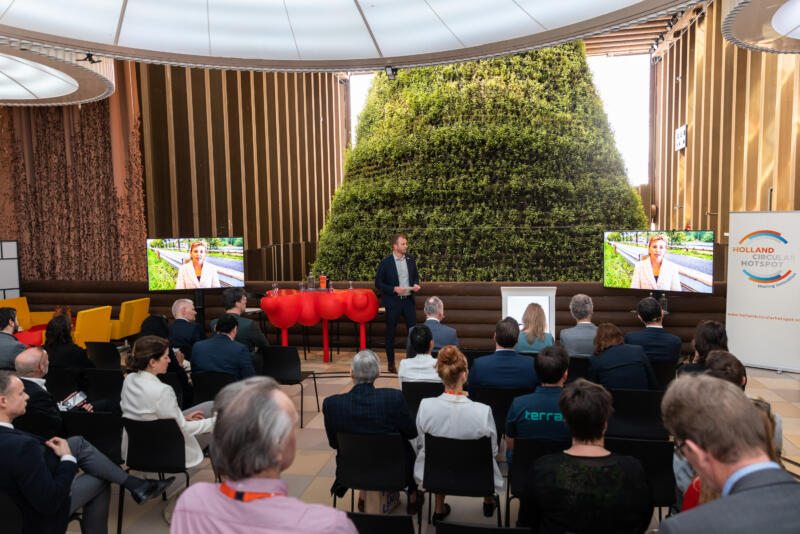
"The National Government has a clear ambition for a circular economy programme; we work together in public, private partnerships and value chains across the world"
Vivianne Heijnen, State Secretary Ministry of Infrastructure and Water Management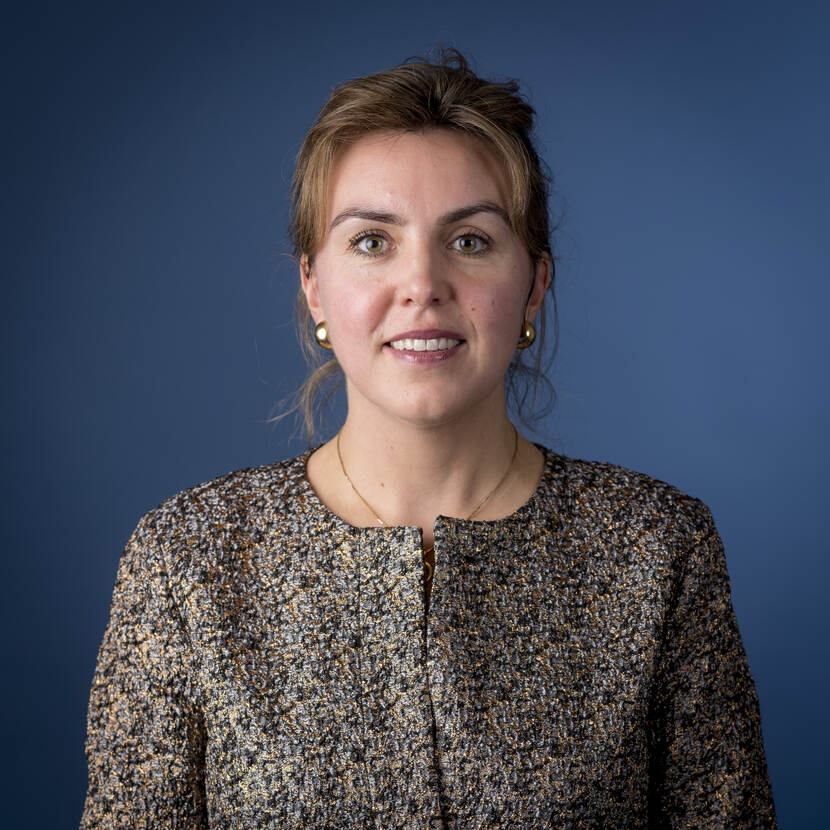
Dutch Circular Day
The Dutch Circular Day programme at the Netherlands Pavilion brought together expert speakers and panelists that underpinned the importance of collaboration, innovation, and promoting new business models in the transition towards a circular economy.
Both Meera Ibrahim AlShuweihi, the Environmental Researcher from the UAE Ministry of Climate Change and Environment (MOCCAE), and Peter Díez, Director of International Affairs from the Netherlands Ministry of Infrastructure and Water Management, agreed on the importance and high priority that should be attributed to the acceleration of the transition towards a circular economy.
Discussions about how circular collaborative efforts between business organizations, knowledge institutions, and government authorities can help solve the climate crisis, were at the center of the day.
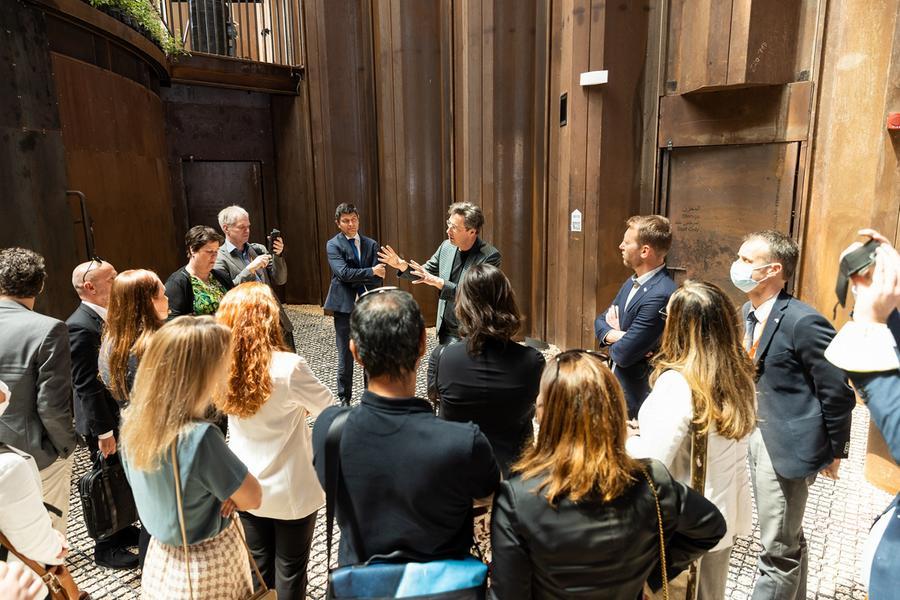
Plenary opening session
Peter Díez, Director International from The Netherlands Ministry of Infrastructure and Water Management opened the session with a brief introduction to the circular agenda policy in the Netherlands. Peter van der Linde from Holland Water highlighted:
“A circular economy transition will not only contribute to the mitigation of climate change, biodiversity loss, and pollution of our environment, but it will also offer massive opportunities to create new jobs, reduce costs, and secure the number of scarce resources.”
During the event, the architect of the pavilion, Michiel Raaphorst from V8 Architects, presented an insightful story behind the design and construction of the green ‘biotope’, including innovative solutions highlighting Dutch expertise and the legacy of the pavilion. “You can only be successful when you work with nature instead of against nature,” Michiel Raaphorst said.
The award-winning Netherlands pavilion promotes Dutch circular and sustainable solutions that can solve globally challenging issues and how they can be implemented in the UAE and Gulf regions for the construction, plastics, and waste management sectors. The pavilion also shares its legacy plans of not leaving any footprint and all its construction materials will be repurposed or recycled.
Circular Construction and Infrastructure
With a growing population, a rising middle class, and urbanization, the built environment is crucial in re-building our economy in a way that is more sustainable than the ‘business as usual’ of the pre-pandemic times. In the seminar, urban planners, architects, and engineering firms shared the latest developing solutions for circular construction and infrastructure, using new business models, digitalization of materials and buildings, and eco-friendly construction materials.
During the session, Director International Peter Díez from the Netherlands Ministry of Infrastructure and Water reaffirmed the commitment of the country to foster cross-border and value chain-centered collaboration to accelerate the transition to a circular economy. Actual cases such as the projects in Groningen Seaports and the City of Almere were presented by Heleen van Wijk and Sabrine Strijbos, addressing how partnerships and active collaboration between the Dutch government and industries are crucial to creating a circular economy transition.
At the panel discussion: Olav Scholte from Signify, Katarina Uherova Hasbani from AESG, Rayya Jawhar from Buro Happold and Arnoud Passenier from the Netherlands Ministry of Infrastructure and Water touched upon the CE emerging initiatives and practices in the UAE. At the same time, they raised the challenges of standardization, certification, and knowledge-sharing on defining circular economy in construction and creating an alternative solution.
Four experts shared their experiences, concerns, and ambitions toward circularity in the UAE. They have also set the ground for potential collaborations and continuous discussion to assure that the partnership between UAE and the Netherlands keeps developing.
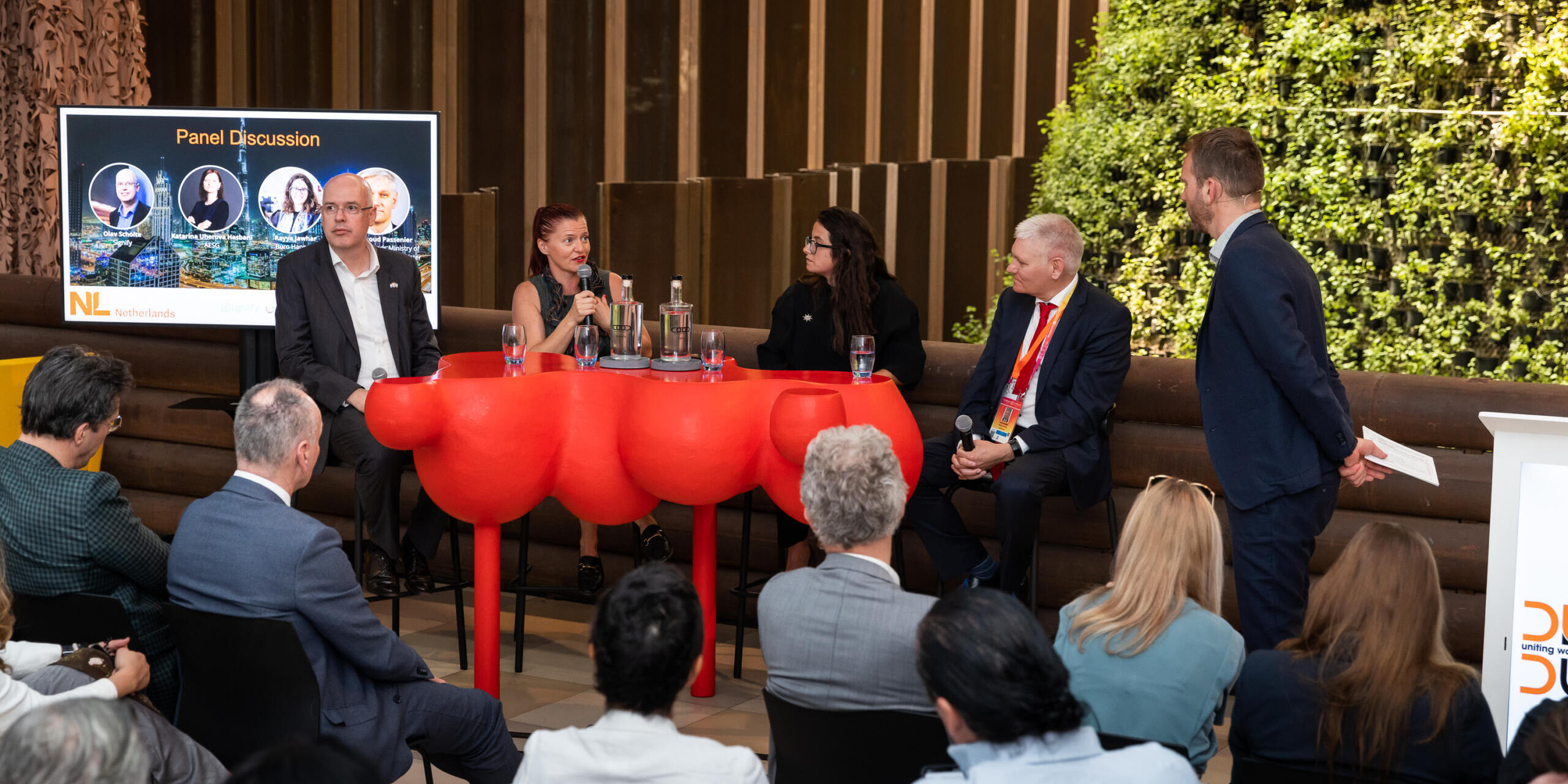
Three inspiring videos were presented, from the designers Ap Verheggen, Marjan van Aubel and buroBELéN demonstrating the building process of the Dutch Pavilion from sun glacier technologies, stained glass solar panels, and bio-based curtains.
Main highlights of the session:
- Having a consortium consisting of a group of different people from different sectors will help the Middle East region to define the needs and challenges to align with the circular economy transition agenda from the government.
- Taking the human aspects and citizens into account has proved vital for creative industries and designers to implement design, technology, and imagination because technology should not be abstract. It is there to make people’s lives better through living together with nature.
- Having EPR regulation in constructions and building materials is of great importance as it helps push forward the market to create the most effective solutions in circularity.
Circular Plastics and Waste Management
Waste management is the last part of a circular economy but often the first step. As such, it can be a catalyst for further circular economy development. The event had circular economy specialists from the Dutch Ministry for the Environment and from the UAE who shared best practices looking at waste management from a design, reuse, and recycle perspective, keeping the products and materials in the loop as long as possible—preventing waste and refusing unnecessary use of raw materials. Circular Economy specialists from the Netherlands and the UAE region were part of the programme.
Arnoud Passenier commented: “I hope we can work together very closely with the Dubai government and federal government to get things moving and use the climate COP28 as a dot on the horizon to show the impact of circular collaboration to the world audience in Abu Dhabi in 2023.”
During the session, Arnoud Passenier from the Netherlands Ministry of Infrastructure and Water Management explained the continuous development of waste management policies in the Netherlands. He also pointed out the role of the European Plastics Pact to redesign and create more sustainable plastics and materials to be recycled back into the chain. From the perspective of the UAE, Meera Al Shuwaihi from the UAE Ministry of Climate Change and Environment (MOCCAE) shared the UAE policies for waste management and the country’s outlook on developing and implementing the initiatives on various projects.
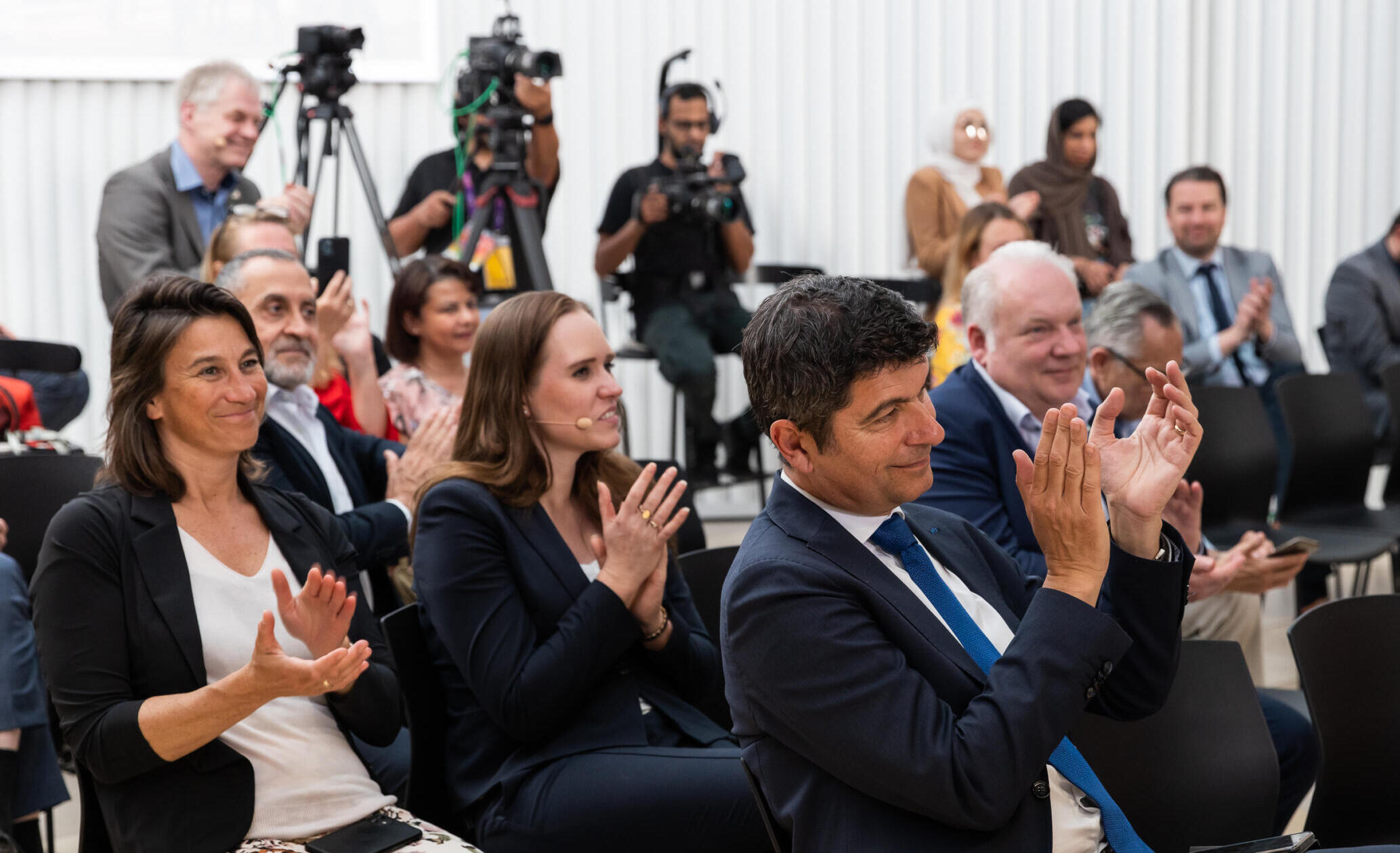
“Dutch companies and organizations are ready to work together with the UAE stakeholders to manage end-of-life products and define the best solution for the country.” Sara Jackson from Circle Coalition.
Sara emphasized that the UAE has accelerated the transition by promoting circular economy concepts in different sectors and industries. Therefore, the government of UAE is now working on projects related to plastic packaging and how they can improve the business models all over the Gulf region. Furthermore, Pieter Imhof from TNO reminded us that the UAE must find the most fitted innovations for the country. “Every region has its own societal and technical solutions, so we can learn and adapt from other countries to aim higher in circularity,” Pieter said.
During the discussions, Farah Qureshi from Holland Water, Willem Sterkenburg from EcoSmart/Renewi, Eric Boxma from Bollegraaf, Maarten Stolk from Ioniqa, and Elwyn van Schreven from Natural Bag demonstrated to the audiences the importance of shifting the way of thinking to create more innovative circular solutions. While Heleen van Wijk from Groningen Seaports agreed upon active collaboration and consumer behaviour changing as the focal points to reach circularity.
